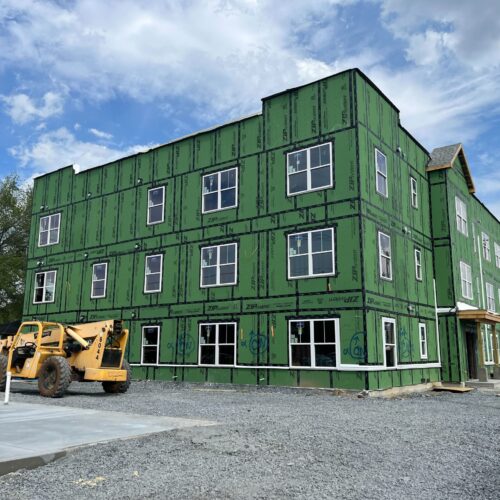
Biden Administration’s “Good Jobs Challenge” to Fund Employment Pathways for People with Criminal Records
Earlier this month, the Biden administration announced $3 billion in new funding through the American Rescue Plan (ARP), focusing on workforce development and training opportunities. A portion of the funding—$500 million—will be allocated for skills training and other workforce and economic development strategies for people facing employment barriers, such as those with criminal records or juvenile adjudications.
Now into the second year of the COVID-19 pandemic, several U.S. sectors are facing extreme labor shortages, and many employers are struggling to fill job openings. Helping create employment pathways for people with criminal and juvenile records not only fosters successful reentry but supports our post-pandemic economic recovery.
But the collateral consequences of a conviction can make it difficult for many people to successfully reenter the workforce or advance their careers. For millions of Americans, the stigma of having a criminal record can impact their ability to find a job, housing, or continue their education—all integral factors for reducing recidivism and sustaining a strong local economy.
The Biden administration’s “Good Jobs Challenge” aims to create industry-led training partnerships that will connect historically underserved populations to in-demand, well-paying jobs. The Economic Development Administration (EDA) will fund proposals focusing on workforce system development, program design, and implementation.
At the same time, many states are addressing the policy and legal barriers to “good jobs” that offer pathways to advancement and family-sustaining wages. In 2021, 14 states passed bills or resolutions to address many of the common barriers to occupational licenses for workers who have criminal or juvenile records. The Good Jobs Challenge offers lawmakers and industry and workforce leaders an opportunity to come together to address unnecessary policy and legal barriers to good jobs while leveraging federal investment to support best-in-class workforce strategies that ensure businesses can hire the talent they need to thrive in their local labor markets.
Eligible applicants include district organizations, state and local governments, tribal organizations, higher-education institutions, and nonprofits. Details on the new funding, including webinars and trainings, can be accessed on the EDA’s website. The application deadline is January 26, 2022.
Additional Resources:
- Our updated digital guide outlines need-to-know insights for state and local leaders about ARP funding to invest in criminal justice initiatives and rethink public safety.
- Our virtual discussion with leading experts highlights ways that ARP funding can support collaborative crisis and early diversion responses to reduce criminal justice contact for people with behavioral health needs.
- Our policy playbooks and report on barriers to continuing education offer state-specific recommendations to reduce barriers to school and work.
About the Author
 Zero Returns to Homelessness Initiative Launches Nationally, with Pennsylvania Leading the Way
Read More
Zero Returns to Homelessness Initiative Launches Nationally, with Pennsylvania Leading the Way
Read More
 New Hampshire Continues Justice Reinvestment Effort to Improve Conditions for People Who Are High Utilizers of Criminal Justice and Behavioral Health Systems
Read More
New Hampshire Continues Justice Reinvestment Effort to Improve Conditions for People Who Are High Utilizers of Criminal Justice and Behavioral Health Systems
Read More















